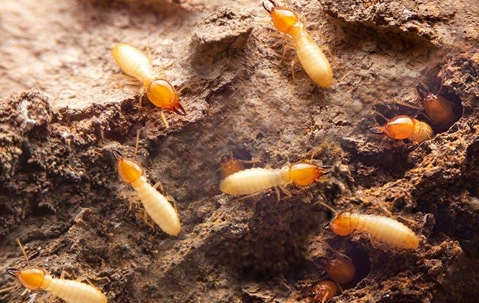Five Signs Your Boston Property May Have A Termite Problem
Termites are every home or business owner's worst nightmare. They silently chew away at the wood of a structure for a long period of time causing an abundance of damage that is costly to fix. Furthermore, termite damage isn't typically covered by insurance leaving you with stressful repairs and an expensive bill.
Understanding Termite Behavior
Similar to other industrious species like ants and bees, the social order of termite civilizations exhibits a strong caste system. This structure is comprised of a queen and king, a small number of winged termites who assist in reproduction, a greater number of soldiers charged to protect the colony, and an overwhelming percentage of workers. These lumber-hungry worker termites will chow down on any wooden material they can uncover, including that which can be found in the floors, furniture, and walls of a human home. The very foundations of these buildings are frequently susceptible to the dreaded woodworm, but it more often than not takes years for the hazardous effects of an infestation to become apparent.
Signs Of Termite Damage
When on the hunt for termites, there are five key signs to keep an eye out for.
Swarmers: One of the earliest indicators of unwanted woodworkers, comes in the emergence of a proximate colony’s winged inhabitants seeking a new place to settle down. While these aerial mites may arise from outside, those hailing from indoors will inevitably leave their nests all the same. Unfortunately, if you happen to see swarmers or find their discarded wings near doors or windows, you already have an established termite colony in or near your building.
Sounds emanating from the walls: Soft clicking or rattling noises can be made by termites ramming their heads against wood to alert their accomplices to danger. These sounds are so faint, they would require a device for human ears to detect. Ironically enough, the bugs can’t hear the noises at all – they can only sense the resulting vibrations.
Hollow-sounding wood: Knock on wood and take note of the reverb. If termites have been busy below the surface, the timber should ring noticeably hollow.
Frass: What is frass? To put it simply, the term refers to the insects’ droppings. It can occasionally be found near the hole to a tunnel, piled up like a small mound of sawdust – an appropriate and apt comparison, considering the dietary intake of a termite. If encountered, the substance should be handled with caution, as it has been known to irritate sensitive skin.
Tight-fitting doors and widows: Liquids produced by termite activity introduce humidity into the environment causing wooden frames to warp and swell slightly.
Preventing Termites From Infiltrating Your Boston Property
With termites and other pests, it's important to be proactive. Even if your home is free of these telltale signs, it’s never too early to prevent the invasion of the wood snackers! There are simple steps you can take right now to dissuade and prevent any incoming termites.
Termites prefer to eat rotten, water-damaged wood. Inspect your home or building for areas of rot and invest in home repairs if needed.
Watch out for places around the foundation of your house where moisture collects. Termites, like any animals, need water to survive, and as such, they are drawn to moist soil close to their food source and nest.
Check for leaking pipes and make sure any rainwater is emptied away from the base of your home.
Be careful when collecting firewood, as termites can unintentionally hitch a free ride inside while munching on stray logs. Also, avoid placing firewood against your house’s foundation.
Use mulch around your property responsibly. The material, while made from wood, is no good for termites nutritionally. Nevertheless, its capacity to absorb moisture can still make it appealing for termites. Just be sure to keep scattered mulch away from potential home entry points.
Last, but certainly not least, you can’t go wrong with professional protection. While do-it-yourself techniques can help hamper pests, nothing thwarts termites like a good dose of termiticide.
In the end, the only surefire way to protect your home against termite activity is with professional termite control. While do-it-yourself techniques can help hamper pests, nothing thwarts termites like a good does of termiticide.
Whether you're looking to prevent termites in the future or you think you have an active colony on your property, the professionals at Urbanex Pest Control have the solutions you need. We use state-of-the-art treatments to protect your home or business from termites or other unwanted pests. Reach out to us today!
Request Your Free Inspection
Complete the form below to schedule your no obligation inspection.

